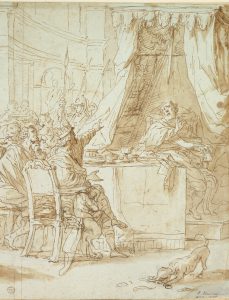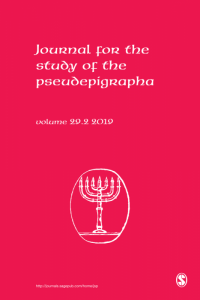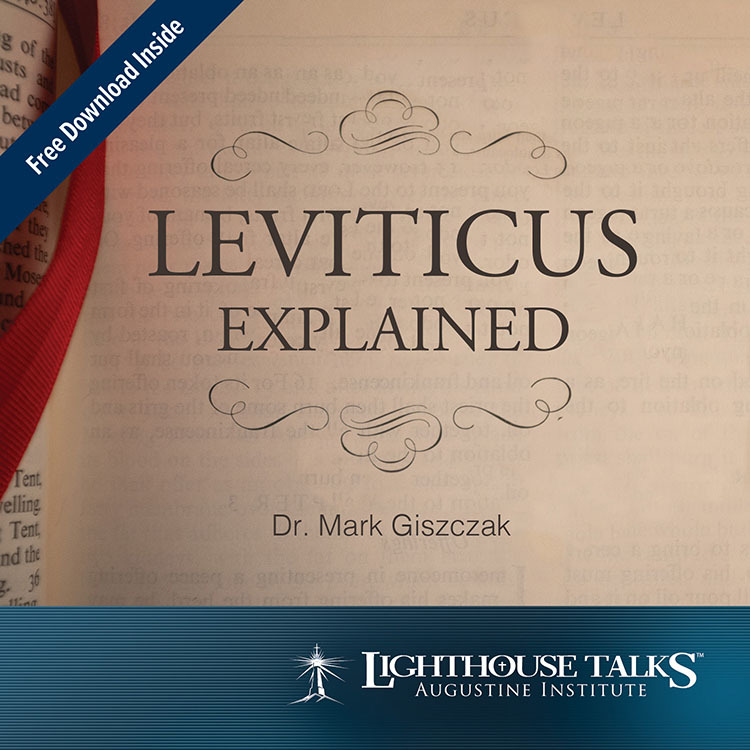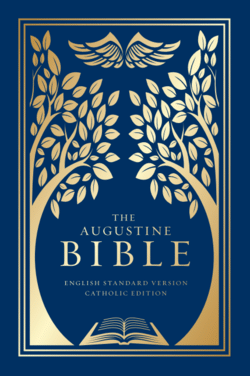For some reason, I keep hearing the phrase “the sword of Damocles” over and over. I’m not sure if everyone in the world decided to brush off their Latin and read some classics during the Covid quarantine or what. But somehow, this particular classical reference is back in vogue and you’ve probably heard it too. So what is this famous sword?
Who is “Damocles” Anyway?
Here’s a short entry on him from The Dictionary of Greek and Roman Biography and Mythology (1870):
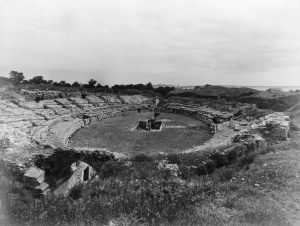 DAMOCLES (Δαμοκλῆς), a Syracusan, one of the companions and flatterers of the elder Dionysius, of whom a well-known anecdote is related by Cicero. Damocles having extolled the great felicity of Dionysius on account of his wealth and power, the tyrant invited him to try what his happiness really was, and placed him at a magnificent banquet, surrounded by every kind of luxury and enjoyment, in the midst of which Damocles saw a naked sword suspended over his head by a single horse-hair—a sight which quickly dispelled all his visions of happiness. (Cic. Tusc. v. 21.) The same story is also alluded to by Horace. (Carm. iii. 1.17.) Source: Edward Herbert Bunbury, “DAMOCLES (Δαμοκλῆς),” Dictionary of Greek and Roman Biography and Mythology (Boston: Little, Brown, and Company, 1870) 935.
DAMOCLES (Δαμοκλῆς), a Syracusan, one of the companions and flatterers of the elder Dionysius, of whom a well-known anecdote is related by Cicero. Damocles having extolled the great felicity of Dionysius on account of his wealth and power, the tyrant invited him to try what his happiness really was, and placed him at a magnificent banquet, surrounded by every kind of luxury and enjoyment, in the midst of which Damocles saw a naked sword suspended over his head by a single horse-hair—a sight which quickly dispelled all his visions of happiness. (Cic. Tusc. v. 21.) The same story is also alluded to by Horace. (Carm. iii. 1.17.) Source: Edward Herbert Bunbury, “DAMOCLES (Δαμοκλῆς),” Dictionary of Greek and Roman Biography and Mythology (Boston: Little, Brown, and Company, 1870) 935.
Just so we all have our bearings: Syracuse (today Siracusa) is in Sicily, not upstate New York. Cicero is the extremely famous Roman orator and senator.
Wait – Who is Dionysus?
Dionysus I the Elder was tyrant of Syracuse, a Hellenistic ruler. He lived about 432 to 367 BC. Let’s just say he was not famous for his kindness. In fact, Dante places him in the River Phlegethon made of boiling blood in the Inferno:
“These are the souls of tyrants, who were given
To blood and rapine. Here they wail aloud
Their merciless wrongs. Here Alexander dwells,
And Dionysius fell, who many a year
Of woe wrought for fair Sicily. …” (Harvard Classics 1909)
But, at least in the afterlife, Dionysus gets to suffer forever with his tyrant buddies like Alexander the Great.
Tell us About the Sword
Ok, but we really want to know more about the sword hanging from a single horse hair over the head of Damocles. Damocles was a sycophant–a member of Dionysus’ court who flattered him and enjoyed his largess. Well, sort of. Dionysus was cartoonishly fearful of plotters and assassins–a typical tyrant perhaps. He wouldn’t even let a barber shave him for fear that the razor would “slip”, so he had his daughters burn off his beard with red-hot walnut shells. In order to keep his people on their toes, Dionysus did not take it lightly when Damocles the flatterer paid him some nice compliments about how great his life as tyrant must be. Dionysus, in order to teach Damocles a lesson decided to give him a taste of the tyrant’s life.
He had a huge feast prepared for Damocles, put him on a golden couch, surrounded him with all of the luxuries of the day. And while Damocles was enjoying himself immensely, Dionysus had a sword suspended over his neck, hanging from only a single horse hair. (You might wonder how the geometry works here since we sit in chairs while we eat so a sword could only be suspended over our heads, not necks. But the Greeks and Romans reclined on couches while they ate, so the neck could be an easy target for such a sword.) Needless to say, Damocles found the situation rather uncomfortable and asked to be released from the bizarre situation. Dionysus had the satisfaction of teaching Damocles the lesson of his life: “that there can be no happiness for him over whom some terror is always impending.” That’s the moral of the story.
Let’s Hear it From Cicero
Here is how Cicero himself tells the tale:
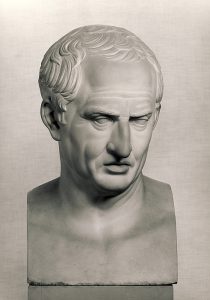 When Damocles, one of his flatterers, in talking with him, recounted his forces, his power, the majesty of his reign, the abundance of his possessions, the magnificence of his palace, and said that there had never been a happier man, he replied, ” Damocles, since this life charms you, do you want to taste it yourself, and to make trial of my fortune ? ” He answering in the affirmative, Dionysius commanded the man to be placed upon a golden couch with a covering most beautifully woven and magnificently embroidered, and furnished for him several sideboards with chased silver and gold. Then he ordered boys chosen for their surpassing beauty to stand at the table, and watching his nod, to serve him assiduously. There were ointments, garlands. Perfumes were burned. The tables were spread with the most exquisite viands. Damocles thought himself favored of Fortune. In the midst of this array Dionysius ordered a glittering sword attached to a horse-hair to be let down from the ceiling, so as to hang over the neck of the happy man. After this, Damocles had no eye for the beautiful servants nor for the silver richly wrought, nor did he reach forth his hand to the table. The gar- lands were already fading. At length he begged the tyrant to let him go; for he no longer wanted to be happy. Does not Dionysius seem thus to have declared that there can be no happiness for him over whom some terror is always impending? Yet it was no longer possible for him to return to justice, and to restore to the citizens their liberty and their rights. In his youth, at an improvident age, he had so ensnared himself by wrong-doings, and had committed them to such an extent, that he could not be safe if he began to behave reasonably. (Source: Andrew P. Peabody, trans., Cicero’s Tusculan disputations, [Boston: Little, Brown & Co., 1886] Book V, 21, pp. 286-88)
When Damocles, one of his flatterers, in talking with him, recounted his forces, his power, the majesty of his reign, the abundance of his possessions, the magnificence of his palace, and said that there had never been a happier man, he replied, ” Damocles, since this life charms you, do you want to taste it yourself, and to make trial of my fortune ? ” He answering in the affirmative, Dionysius commanded the man to be placed upon a golden couch with a covering most beautifully woven and magnificently embroidered, and furnished for him several sideboards with chased silver and gold. Then he ordered boys chosen for their surpassing beauty to stand at the table, and watching his nod, to serve him assiduously. There were ointments, garlands. Perfumes were burned. The tables were spread with the most exquisite viands. Damocles thought himself favored of Fortune. In the midst of this array Dionysius ordered a glittering sword attached to a horse-hair to be let down from the ceiling, so as to hang over the neck of the happy man. After this, Damocles had no eye for the beautiful servants nor for the silver richly wrought, nor did he reach forth his hand to the table. The gar- lands were already fading. At length he begged the tyrant to let him go; for he no longer wanted to be happy. Does not Dionysius seem thus to have declared that there can be no happiness for him over whom some terror is always impending? Yet it was no longer possible for him to return to justice, and to restore to the citizens their liberty and their rights. In his youth, at an improvident age, he had so ensnared himself by wrong-doings, and had committed them to such an extent, that he could not be safe if he began to behave reasonably. (Source: Andrew P. Peabody, trans., Cicero’s Tusculan disputations, [Boston: Little, Brown & Co., 1886] Book V, 21, pp. 286-88)
Is the Sword of Damocles on the Rise?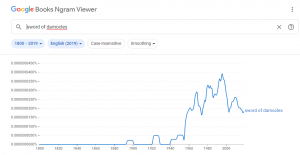
According to Google nGram, peak “sword of Damocles” usage was in 1996. Perhaps I’ve just heard it a lot recently. Maybe if we check back in a few years, we’ll see a new spike in usage of the term. Anyway, there you have it. Now you know what the Sword of Damocles is all about.

